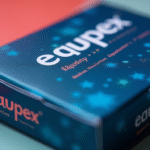Introduction
According to the Panamerican University’s Sustainable Corporate Pulse 2025 report, in collaboration with global consultancy Roland Berger, 84% of Mexico’s top 100 companies now issue formal sustainability reports, and 93% explain the methodology used. This growth indicates that more Mexican businesses are integrating social and environmental responsibility into their business strategies, enhancing their reputation and access to global markets.
Progress and Challenges
Despite these advances, challenges remain. Only 25% of companies report Scope 3 emissions related to their value chain, and just 5% provide logistical metrics, limiting genuine traceability of their environmental footprint. This demonstrates that while transparency and formalization have improved, the depth and comparability of reports still fall short of international standards.
International Standards: Opportunity and Challenge
Although adhering to the European Reporting Standards for Sustainability (ESRS) is not mandatory in Mexico, experts suggest that compliance could be the difference between global growth and falling behind. The research reflects a transformative landscape: sustainability is becoming a strategic factor, but it demands greater rigor and consistency for Mexican companies to compete and stand out in international trade.
Diego Ibarra, a sustainability expert at Roland Berger, notes that Mexican companies are progressing, though most do not follow European standards. Instead, they adhere to global frameworks like GRI or SASB. However, the new ESRS, along with IFRS S1/S2 standards, require a level of depth and comparability that few Mexican reports currently offer.
Joaquina Niembro, a researcher at the Panamerican University, points out that the financial and consumer sectors show greater maturity in their reports, while logistics and manufacturing industries lag, particularly in measuring indirect emissions. The gap is significant: while Europe demands auditable, comparable, and standardized metric reports, Mexico favors flexibility. This means that many companies report initiatives without consistent methodology for verification.
Benefits of Greater Rigor
“Implementing sustainability reports incurs costs, but the benefits—in terms of market access, capital attraction, and reputation—far outweigh the initial investment,” says Niembro from the Panamerican University. “Not only will regulatory risks be reduced, but companies will also gain competitive advantages, such as better access to financing, investor confidence, and increased attractiveness in global supply chains,” added Ibarra.
Reporting sustainability is no longer optional. Mexican companies must transition from vague commitments to verifiable results. Those who fail to adapt risk falling behind in international trade, while those who lead the way will be better positioned to drive transformation towards a more competitive and sustainable economic model.
Key Questions and Answers
- What is the current state of corporate sustainability in Mexico? 84% of the top 100 companies issue formal sustainability reports, and 93% explain their methodology. This shows progress in integrating social and environmental responsibility into business strategies.
- Why are international standards important for Mexican companies? Adhering to these standards, like the European Reporting Standards for Sustainability (ESRS), can help Mexican companies compete and stand out in international trade. Currently, few reports offer the required depth and comparability.
- What are the benefits of greater rigor in sustainability reporting? Implementing rigorous sustainability reports reduces regulatory risks and provides competitive advantages, such as better access to financing, investor confidence, and attractiveness in global supply chains.
- What challenges do Mexican companies face in sustainability reporting? Despite progress, only 25% of companies report Scope 3 emissions, and just 5% provide logistical metrics. This limits genuine traceability of their environmental footprint and falls short of international standards.






